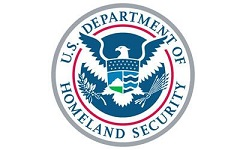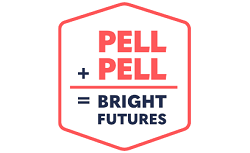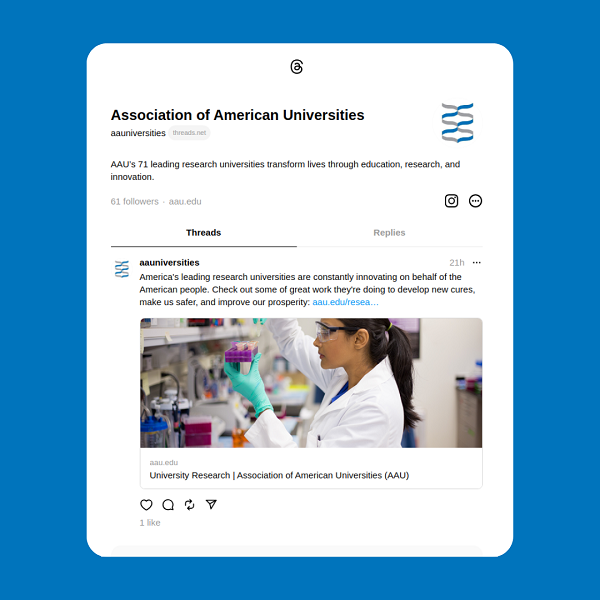AAU President Reiterates the Value of Diverse Campus Communities
On June 29, the United States Supreme Court ended the practice of race-conscious admissions at U.S. institutions of higher education. The court ruled unconstitutional longstanding, holistic admissions practices at Harvard University and the University of North Carolina at Chapel Hill that considered race as one of many factors in evaluating applicants. AAU President Barbara R. Snyder released a statement expressing disappointment in the court’s decision and reiterating the continued commitment of America’s leading research universities to creating diverse student bodies.
“In its previous decisions, the court recognized that colleges and universities have a compelling interest in using race-conscious admissions to cultivate student diversity, which promotes academic success and improves educational outcomes for all students,” she said. The court’s decision, President Snyder continued, “encroaches on the ability of colleges and universities to exercise their academic judgment in using a holistic admissions process that evaluates applicants using a broad spectrum of academic and nonacademic factors. Despite what the majority of the court implies in its decision, the record shows that these processes have never reduced an applicant solely to race or ethnicity.”
Harvard University President Claudine Gay said in a video message that while the court’s decision will change how the university pursues “the educational benefits of diversity,” its “commitment to that work remains steadfast.” UNC-Chapel Hill Chancellor Kevin M. Guskiewicz also affirmed the university’s commitment “to bringing together talented students with different perspectives and life experiences.” Both universities noted that they will take steps to comply with the decision.
 AAU Leaders Appointed to Homeland Security Academic Partnership Council
AAU Leaders Appointed to Homeland Security Academic Partnership Council
Last month, Homeland Security Secretary Alejandro Mayorkas announced that he has appointed 20 new members to the Homeland Security Academic Partnership Council (HSAPC), which advises the secretary on a variety of matters relevant to homeland security and academia. Appointees to the council include AAU President Barbara R. Snyder, Carnegie Mellon University President Farnam Jahanian, and Northwestern University President Michael Schill.
Secretary Mayorkas created the HSAPC in 2022; a body with the same functions, but known as the Homeland Security Academic Advisory Council (HSAAC), was formally established in 2012. HSAAC stopped holding meetings in late 2017; in 2019, then-President Trump’s administration dissolved it.
Secretary Mayorkas reestablished the HSAPC in response to bipartisan legislation led by Rep. Raja Krishnamoorthi (D-IL), Rep. Ralph Norman (R-SC), and Sen. Dick Durbin (D-IL). “I’m honored to have been selected as a member of the HSAPC and look forward to participating in the group as it partners with Secretary Mayorkas and the Department of Homeland Security,” President Snyder said in a press release about the council sent out by Rep. Krishnamoorthi’s office.
AAU and other higher education associations had asked Secretary Mayorkas early in his term to restore the council. Prior to 2017, the council had served as a valuable forum to discuss policies on international students, campus emergency preparedness, cybersecurity, and homeland security-related academic and research programs. The council will hold its first public meeting in the coming months
 AAU Members to Host Centers Aimed at Improving Cancer Outcomes in Low-Income Communities
AAU Members to Host Centers Aimed at Improving Cancer Outcomes in Low-Income Communities
Last month, the National Institutes of Health launched the Persistent Poverty Initiative to “alleviate the cumulative effects of persistent poverty on cancer outcomes by building research capacity, fostering cancer prevention research, and promoting the implementation of community-based programs.”
As part of the $50-million initiative, the NIH is creating five new centers that will work with low-income communities “to implement and measure the effectiveness of structural interventions for cancer control and prevention, follow-up care, and survivorship.” Three of the new centers will be run by AAU universities, including the Upstream Center led by Stanford University; the Center for Social Capital led by Weill Cornell Medicine and Columbia University; and the HOPE & CAIRHE 2gether Center led by the University of Utah.
 HAAU Asks Congress to Protect Pell Funding
HAAU Asks Congress to Protect Pell Funding
The Double Pell Alliance, which includes AAU, recently sent a letter thanking both Senate and House Appropriations Committee members for the “historic increases provided to the Pell Grant in recent years” and for their bipartisan support of the program. Introduced more than 50 years ago, the federal Pell Grant program has helped millions of Americans afford a college education. As the alliance’s letter noted, “Pell Grants allow more than six million low- and middle-income students – including nearly 60 percent of Black undergraduates and almost half of Latino undergraduates – to attend college each year, serving a critical boost in affordability for students who would not otherwise be able to attend college.”
The letter urged committee members to ensure that, as they work on FY24 appropriations, “funding dedicated to the Pell Grant program remains within Pell Grants and is not used to fill budget gaps in other programs.” The alliance emphasized that protecting Pell Grant funding “is a critical step towards ensuring that the program benefits students, as Congress intended.” AAU supports the #DoublePell campaign to increase the maximum Pell Grant award and continues to urge Congress to protect and support the Pell Grant program.
National Academies Releases New Report on Foreign-Funded Language and Culture Institutes
A National Academies of Sciences, Engineering, and Medicine committee studying Confucius Institutes released a report last month making recommendations on how colleges and universities in the United States can identify and mitigate risks associated with foreign-funded language and culture institutes. The committee published a separate report earlier this year proposing a set of criteria the Department of Defense could use to develop a waiver process for institutions that maintain Confucius Institutes and apply for DOD research funding.
Confucius Institutes usually support Chinese language instruction and also offer cultural events on college campuses. The institutes have come under increased scrutiny from Congress in recent years because they receive funds directly from the Chinese government. A majority of Confucius Institutes have closed in the past few years, and only a handful still remain.
The committee’s new report examines the risks and concerns related to foreign-funded language and cultural institutes and programs beyond Confucius Institutes. The report features several examples of foreign-funded language and culture institutes at U.S. institutions of higher education and suggests several ways colleges and universities can vet these partnerships. The report also outlines how these institutes, especially when sponsored by nations that do not support democratic ideals, may pose risks for U.S. host institutions regarding academic freedom, freedom of expression, governance, and national security.
News of Interest
The New York Times: With End of Affirmative Action, a Push for a New Tool: Adversity Scores – With the Supreme Court ruling against race-conscious admissions, the University of California, Davis medical school’s “socioeconomic disadvantage scale” is drawing attention as a potential tool to help diversify student bodies. The medical school uses the scale to rate applicants based on factors such as family income and parental education and then makes admissions decisions based on students’ ratings as well as “the usual portfolio of grades, test scores, recommendations, essays and interviews.” The scale “has helped turn U.C. Davis into one of the most diverse medical schools in the country.”
Higher Ed Dive: Here’s Why the Education Department’s Proposed Financial Transparency Website Has Higher Ed Worried – The Department of Education is proposing to create a new financial transparency website that will provide students with information about every higher education program’s “statistics on debt burdens, graduate earnings, and tuition and fee costs.” Higher education institutions are worried that collecting the required data would impose significant additional costs on them and require hundreds of thousands of hours of additional work.
Inside Higher Ed: Chinese Scientists Increasingly Leaving U.S. – A new study shows that three times as many scientists of Chinese descent left the United States for China in 2021 than in 2010. The departure rates increased significantly after the launch of the Justice Department’s “China Initiative,” which sought to crack down on Chinese theft of intellectual property from American labs and universities. The authors said that the results show that Chinese scientists experienced “general feelings of fear and anxiety” as a result of the initiative “that led them to consider leaving the United States and/or stop applying for federal grants.”
Yahoo! Finance: Student Loans: Biden Unveils Plan B After Supreme Court Strikes Down Forgiveness – Last month, the Supreme Court struck down President Biden’s student loan debt forgiveness program. In response, the administration has begun the regulatory process to provide debt relief under the Higher Education Act. In addition, the Education Department has created a 12-month “on-ramp” program to help borrowers once student loan repayments resume in October. Under the program, borrowers will not “be penalized for late, missed, or partial payments” for 12 months.
Inside Higher Ed: Does the Supreme Court Order Apply to Financial Aid? – The Supreme Court’s ruling ending the use of affirmative action in college admissions may also apply to financial aid scholarships designed to benefit minority students. In Missouri, universities are already complying with an order from the state attorney general to “immediately adopt race-blind standards” for “not just college admissions, but also scholarships, employment, law reviews, etc.”
The Chronicle of Higher Education: Refugee Students Gain a New Path to U.S. Colleges. Here’s Why That’s a Big Deal. – Under a new State Department program, groups of Americans will be able to support refugee students and help them attend college. The Welcome Corps on Campus program will “enable qualified students to resettle in the United States, enroll at a participating institution, and obtain legal permanent residency.”
Featured Research

Poverty Is the 4th Greatest Cause of U.S. Deaths
A new University of California, Riverside study estimates that poverty caused 183,000 deaths in the United States in 2019 among people 15 years or older. “Only heart disease, cancer, and smoking” caused more deaths than poverty that year. The study found that “obesity, diabetes, drug overdoses, suicides, firearms, and homicides, among other common causes of death, were less lethal than poverty.”

Viewers Actually ‘Binge-Watch’ TV with a Lot of Self-Control
A new study from the University of California San Diego, Carnegie Mellon University, and Temple University finds that binge-watching isn’t as impulsive as it is usually perceived. The study found that viewers plan to binge-watch shows with episodes that are “more sequential and connected.” Viewers are less likely to binge-watch if they perceive shows to have independent episodes or if shows are interrupted by commercials.
From Our Feeds

AAU is now on Threads, where you can find stories about the amazing discoveries, breakthrough cures, and more happening across the country through the work of America’s leading research universities. Follow us today at threads.net/@aauniversities.